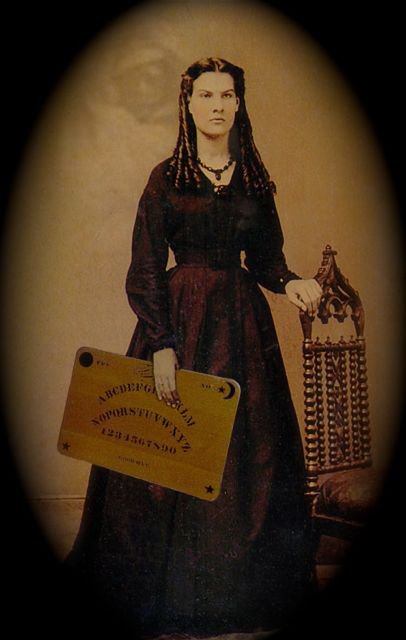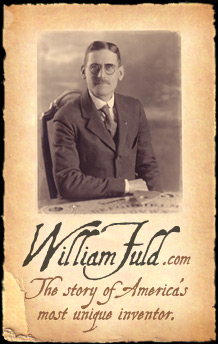OUIJABOARDS.US
Antique Wood Ouija Boards and Planchettes For Sale
Fuld, Kennard, Simmons, Ouija, Spirit Boards and Planchettes
History
History of Ouija Boards

Home - Contact - Links - Webrings
|
OUIJABOARDS.US Antique Wood Ouija Boards and Planchettes For Sale Fuld, Kennard, Simmons, Ouija, Spirit Boards and Planchettes History History of Ouija Boards |
 |
Some people believe that that Ouija boards are
ancient and go back as far as 500 BC. Ouija boards as we know them are
very young compared to older methods of divination. Similar devices may
have existed, but Ouija boards, being a flat surface with the alphabet and
numerals on it, with a planchette for choosing letters and numbers, didn't come
along until much later.
No one seems to know just who invented the Ouija board but it may have been
Elijah Bond, since his name is on the original patent documents as the inventor.
It may have been Charles Kennard, but regardless of who actually invented the
board, he and Kennard Novelty Company patented the ouija board which became very
popular at the turn of the twentieth century. He received the patent on
February 10, 1891. He called the new creation "Ouija" because he
claims the board told him that Ouija was Egyptian for "Good Luck."
He began producing the Ouija boards (also called Egyptian Luck boards) in 1890.
They sold for $1.50 and they were made of solid wood. The boards were huge
and so were the planchettes.
After only another year, Charles Kennard was out of the Ouija business. A
man who worked for Kennard Novelty Company ended up taking over. He's is
probably the best known name in Ouija history. This man was William Fuld.
His name is on every genuine Ouija board made for over 100 years until Parker
Brothers took over in the 1990s. William Fuld (along with his brother and
business partner Isaac) changed the Kennard Novelty Company to the Ouija Novelty
Company and continued selling boards large numbers of them. When Isaac was
fired and set up his own shop, the company name was changed again to the William
Fuld Company.

|
William Fuld then owned all rights to the Ouija board. He claimed that he
invented the board. He also said that the name Ouija was a mixture of the
French and German words for "yes" Oui and Ja, therefore Ouija. After his death in 1927. His children then took over the business and continued selling the boards through the great depression up until 1966 when they retired. This is when the Ouija board rights were to Parker Brothers. The first wooden boards Parker Brothers produced were well made. But then the boards went from hardboard, to tightly-pressed paper, to cardboard. Now the only wooden boards are made by individual craftsmen. |
HISTORY HISTORY HISTORY of FULDS at www.williamfuld.com
For more history visit the Museum of Talking Boards.
Home - Contact - Links - Webrings
www.ouijaboards.us